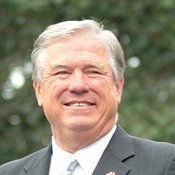Despite the fact that Gov. Haley Barbour announced last week that the BP has paid $181 million in Mississippi oil spill claims as of Dec. 1, Mississippi Gulf Coast fishing industry representative Linda St. Martin claims the oil company and the federal government aren't working hard enough to repair the lives of the fishing industries and casino affected by the BP Deepwater Horizon oil disaster.
BP agreed to let the federal government set up the claims process to reimburse Gulf Coast workers and business owners for their economic loss. Barbour reported the Gulf Coast Claims Facility has paid 12,500 out of 55,490 claims Mississippi residents and businesses filed since the facility formed in late August.
But St. Martin says the system, which Ken Feinburg oversees, is largely ignoring the fishing and casino industry.
"A lot of us have not seen that money. Many of our people have seen a little bit, but some have not seen anything, and the process is moving very slowly," St. Martin said. "(BP) was so fast to give realtors in the state of Florida $60 million early in the summer for their oil damage, even though the industry was suffering already because of the economy. Real estate was way off everywhere, but they got them their money so fast it made my head spin."
St. Martin said the claims process has also largely ignored low-level casino employees laid off as a result of failing casino revenues this year.
"There are casino workers filing claims whose supervisors and employers have said they've laid them off because of lower business brought on by the oil spill, but many of them weren't seeing any of that money. Most of their money was from tips, and many of them have received nothing," St. Martin said.
Meanwhile the Mississippi oyster industry is dying, said Ed Cake, an oyster biologist and president of the consulting firm Gulf Environmental Associates in Ocean Springs.
"In Mississippi's waters, oysters are not in good shape at all. They were just recovering from Hurricane Katrina. We were looking forward to a good season, but then we had what I call 'black water' moving into Pass Christian and Long Beach area, containing both oil and oil dispersant, Cake said. "It was during that time that we had a significant kill of crab, shrimp and fish. Shortly thereafter they found 80 percent of oysters present in the reefs dead."
Oyster reefs also suffered from the saturation of freshwater from rivers and streams diverted to keep oil out of bays. Cake said the death of countless organisms in the water triggered the growth of bacteria that further depleted water oxygen supplies, choking off much of the remaining life.
Cake said water temperatures are dropping in the Gulf and he expects some previously dispersed oil to coagulate and wash ashore.
"(BP) did a good job of sinking the oil and dispersing it, and making us think it wasn't there. They did a fine job of that," Cake said bitterly.
St. Martin said the future of the state's oyster industry remains in jeopardy as long as the water remains poisonous.
"This was supposed to be our comeback year," St. Martin said. "Then in April, through greed and substandard practices, BP's rig blew up and killed 11 men, and then killed the seafood industry in the Gulf."
Mississippi Attorney General Jim Hood, who said he would be watching the BP claims process this summer, did not immediately return calls.



Comments
Use the comment form below to begin a discussion about this content.
comments powered by Disqus